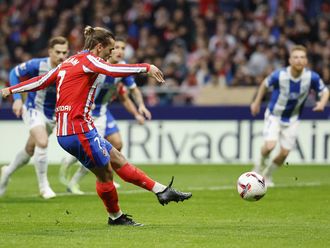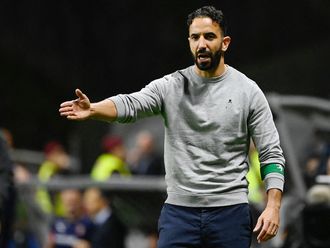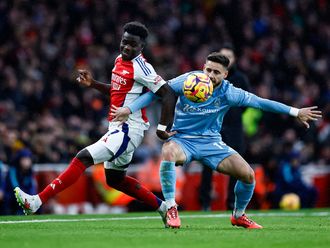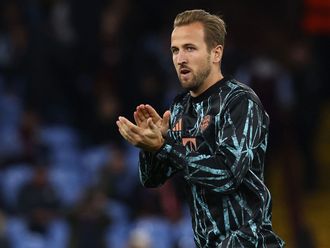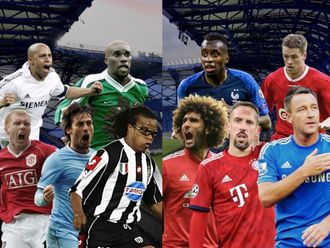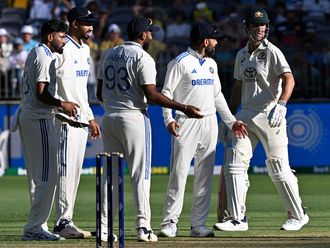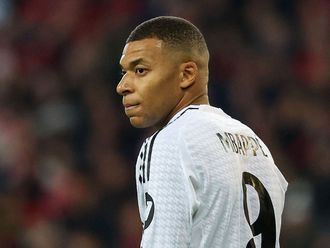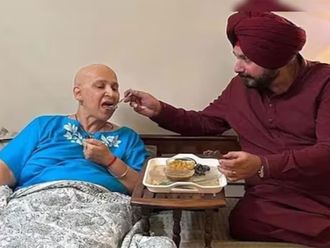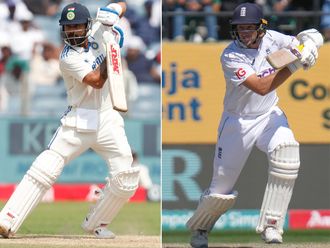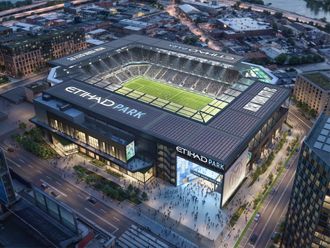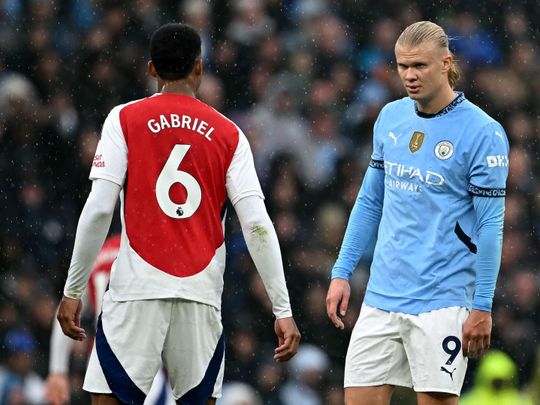
Sunday’s showdown between Manchester City and Arsenal was an instant classic.
In the top-of-the-table clash, tempers flared, four goals flew in and a red card spiced up the action at the Etihad. Arsenal dug in with backs-to-the-wall defending after being reduced to ten men, while Erling Haaland made history with his 100th goal in just 105 goals for the Citizens.
To top it off, City snatched their latest-ever Premier League goal in the 98th minute, sealing a dramatic 2-2 draw to deny the Gunners a first victory in the blue side of Manchester since 2015.
Simply, it was exactly what a big game should be.
It felt like a rare throwback, the kind we haven’t seen in years - what fans often refer to as ‘Prime Barclays’ - a term that references the era between 2001 and 2016 when Barclays Bank sponsored the Premier League.
In the early days of that era, Arsenal and Manchester United were the league's heavyweights, and their meetings at Old Trafford and Highbury were fierce battles, often boiling over both on and off the pitch.
One memorable moment saw Arsenal players surround and taunt United striker Ruud van Nistelrooy after his last-minute penalty miss. In another, Patrick Vieira and Roy Keane clashed in a fiery tunnel altercation before the game even kicked off.
I could go on about the hostility between the two sides, but in short, they genuinely despised each other.
Fans loved that intensity. As long as it stayed just shy of a full-on brawl, it had a rightful place in the game. Supporters still long for that same edge in today’s game.
Liverpool and Manchester City have enjoyed a thrilling rivalry over the past five years, with both teams setting almost unimaginable standards in their pursuit of the Premier League title. While their matches were always entertaining, there was never any real edge to them - both teams, and their managers, had too much mutual respect.
Now, with Arsenal emerging as serious title contenders, we may be in for a new era of titanic battles, if Sunday’s match is any indication.
From the opening seconds, there was a nasty edge when Kai Havertz and Rodri collided, but the game truly ignited just before halftime when Leonardo Trossard was sent off after picking up a second yellow card.
With a lead to defend, Arsenal switched to five defenders and four midfielders, sacrificing any attacking intent. It was backs-to-the-wall football, with City dominating 87% of possession, yet rarely testing David Raya in the Arsenal goal. As the frustration grew, Arsenal added to it by slowing the game down, with players frequently going down for treatment, seemingly part of Mikel Arteta’s strategy to disrupt City’s rhythm.
The tension was palpable. Bernardo Silva was even booked for protesting after Jurrien Timber joined several teammates in hitting the deck and calling for the physio.
A couple of minutes later, that despair would turn to relief as John Stones slotted home to rescue a points for the Premier League champions in the eighth additional minute, despite only six being shown by the fourth official.
Haaland, usually the calmest player on the pitch, lost his cool, throwing the ball at Gabriel’s head after the equaliser and then crashing into Thomas Partey moments later.
A scuffle ensued, with Gabriel and Haaland needing to be separated. The tension spilled over after the final whistle, as Pep Guardiola complained to the fourth official and Gabriel Jesus exchanged words with Haaland.
Watching from home, you could feel the friction. Two teams desperate to win, leaving everything on the pitch—this is the kind of passion and intensity football fans have been craving for years.
“I love them coming together and seeing the needle on the bench at the end,” said former Liverpool defender Jamie Carragher following the game.
“That little bit of friction, as long as it doesn’t completely cross the line, it just adds a little bit of something to the fixture.”
Former Manchester United defender Garry Neville added: “I don’t buy into this theory, maybe it’s an old-fashioned theory, that you can like each other if you’re going for a title. I just don’t think you can, honestly.”
Both were absolutely right—fans want to see that friction between the two best clubs in the country. No one really wants to watch players acting like best mates after battling for 90 minutes. Football is a tribal game, after all.
I’m not suggesting they should be knocking lumps out of one another, but a bit of needle and confrontation were always part of the game in the noughties. That intensity made a welcome return on Sunday, and we can only hope the reverse fixture brings the same fire.


